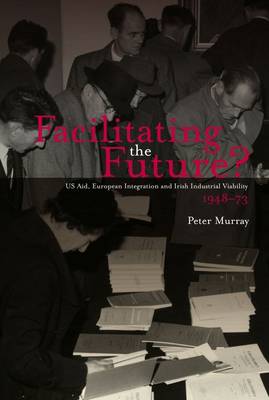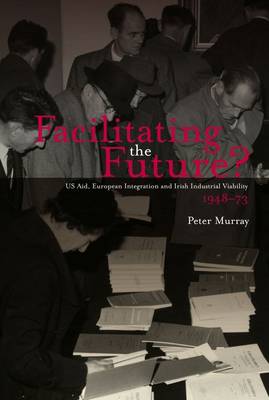
- Afhalen na 1 uur in een winkel met voorraad
- Gratis thuislevering in België vanaf € 30
- Ruim aanbod met 7 miljoen producten
- Afhalen na 1 uur in een winkel met voorraad
- Gratis thuislevering in België vanaf € 30
- Ruim aanbod met 7 miljoen producten
Zoeken
Facilitating the Future?
Us Aid, European Integration and Irish Industrial Viability,1948-73
Peter Murray
Paperback | Engels
€ 40,45
+ 80 punten
Omschrijving
After the Second World War the Irish state maintained the high industrial tariffs of the 1930s, despite the inefficiency of its protected industries. Such inefficiency fed into the crisis of economic stagnation and mass emigration that engulfed the Republic in the 1950s. As EEC entry became the state's goal, adapting and upgrading Irish industries for free trade conditions loomed large in the 1960s. These ends were pursued through technical assistance schemes and a productivity drive - innovations introduced to the Irish state by the US Marshall Plan. This book looks at this neglected aspect of post-war Irish history and analyses the social, political and economic effects of the policies pursued.
Specificaties
Betrokkenen
- Auteur(s):
- Uitgeverij:
Inhoud
- Aantal bladzijden:
- 208
- Taal:
- Engels
Eigenschappen
- Productcode (EAN):
- 9781906359386
- Verschijningsdatum:
- 1/12/2009
- Uitvoering:
- Paperback
- Formaat:
- Trade paperback (VS)
- Afmetingen:
- 155 mm x 229 mm
- Gewicht:
- 399 g

Alleen bij Standaard Boekhandel
+ 80 punten op je klantenkaart van Standaard Boekhandel
Beoordelingen
We publiceren alleen reviews die voldoen aan de voorwaarden voor reviews. Bekijk onze voorwaarden voor reviews.











